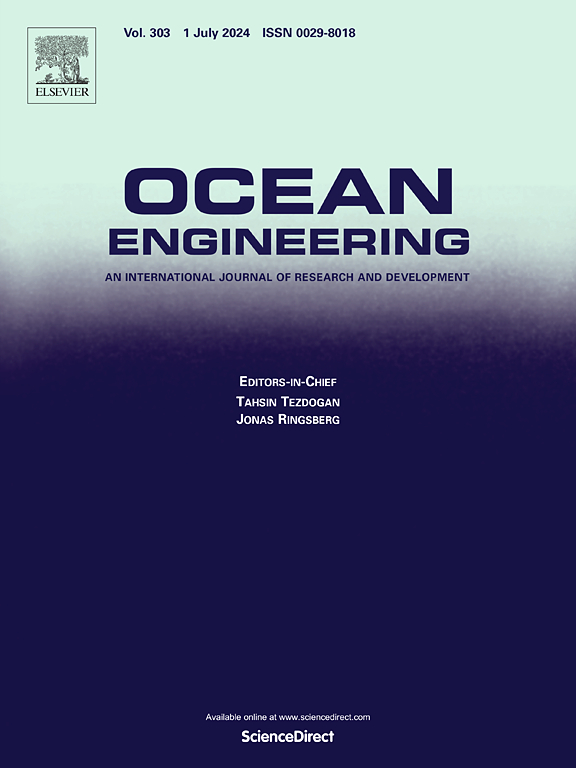海床地形和海岸线影响下的海洋漂浮光伏系统水动力分析
IF 4.6
2区 工程技术
Q1 ENGINEERING, CIVIL
引用次数: 0
摘要
海洋浮动光伏(MFPV)系统是近海清洁能源开发领域前景广阔的前沿技术,主要应用于近岸浅水区。在这些区域,浅水深度、错综复杂的海底地形和崎岖不平的海岸线对波浪的传播和转换过程产生了深刻影响,导致波浪条件极不均匀,从而使基于公海假设的传统流体力学理论变得不充分。本研究采用混合布西内斯克-面板法(HBPM),将地形对波浪动力学的影响纳入水动力计算,在计算精度和效率之间取得平衡。一系列验证案例证明了 HBPM 在浅水环境中的准确性和必要性。典型海湾场景的计算结果显示,水深和海岸线反射的变化会产生多向、不均匀的波场,从而导致结构复杂的受力和运动特性。为确保结构的完整性,建议选择远离防波堤入口、靠近防波堤本身的安装地点。本文章由计算机程序翻译,如有差异,请以英文原文为准。
Hydrodynamic analysis of marine floating photovoltaics under the influence of seabed topography and coastlines
Marine floating photovoltaics (MFPV) systems emerge as a promising frontier in the development of offshore clean energy, with their primary applications being in nearshore shallow waters. In these areas, the shallow depths, intricate seabed topographies and rugged shorelines profoundly affect wave propagation and transformation processes, leading to highly inhomogeneous wave conditions and thereby rendering traditional hydrodynamic theories based on assumptions of open seas inadequate. This study employs a hybrid Boussinesq-Panel Method (HBPM) to incorporate the effects of topography on wave dynamics into hydrodynamic calculations, striking a balance between computational accuracy and efficiency. A series of validation cases demonstrate the accuracy and necessity of the HBPM in shallow water environments. Computational results from typical bay scenarios reveal that variations in water depth and coastline reflections create multidirectional, non-uniform wave fields, which lead to complex force and motion characteristics of the structure. To ensure structural integrity, it is recommended to select installation sites located away from the breakwater entrance and close to the breakwater itself.
求助全文
通过发布文献求助,成功后即可免费获取论文全文。
去求助
来源期刊

Ocean Engineering
工程技术-工程:大洋
CiteScore
7.30
自引率
34.00%
发文量
2379
审稿时长
8.1 months
期刊介绍:
Ocean Engineering provides a medium for the publication of original research and development work in the field of ocean engineering. Ocean Engineering seeks papers in the following topics.
 求助内容:
求助内容: 应助结果提醒方式:
应助结果提醒方式:


